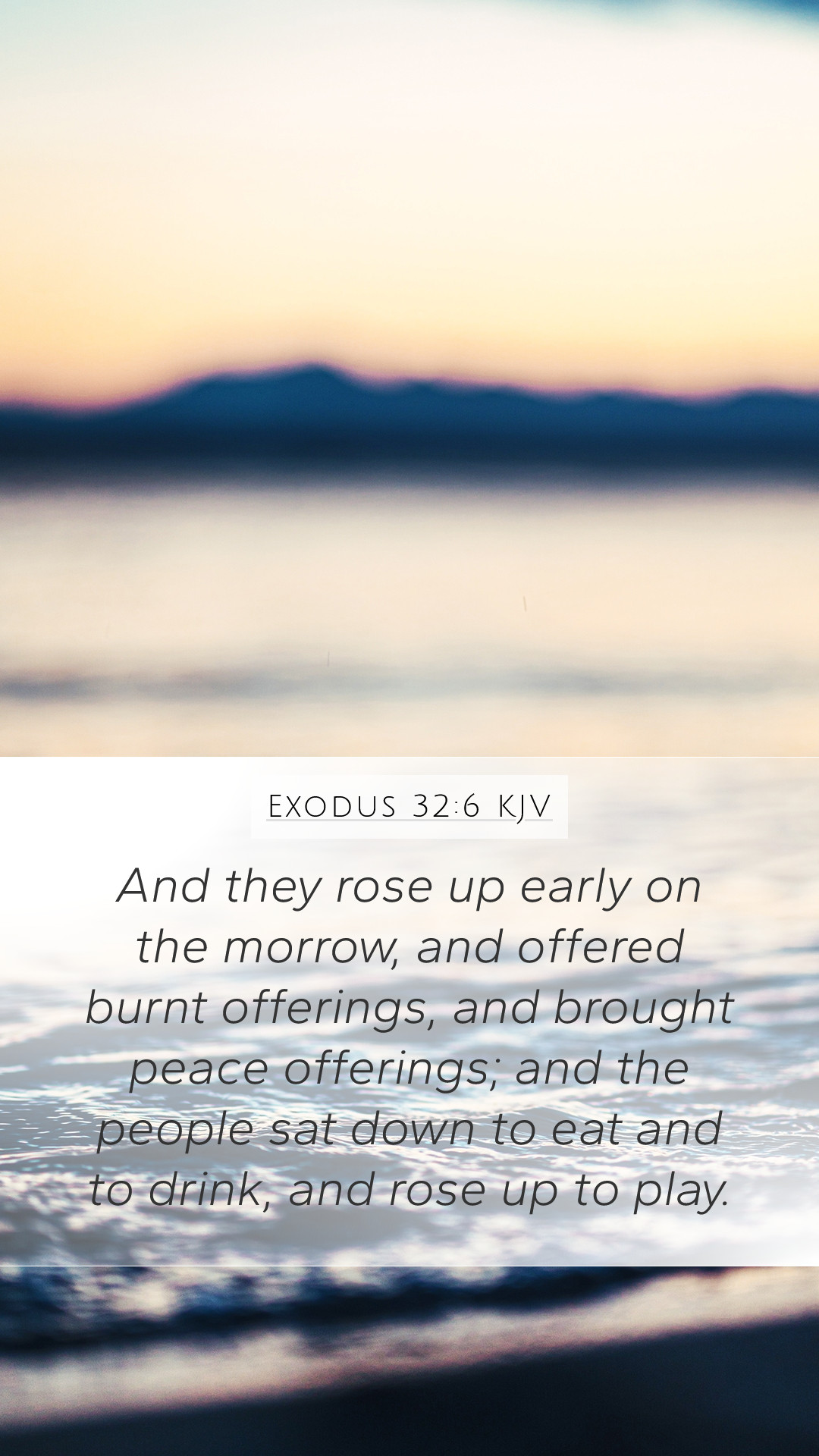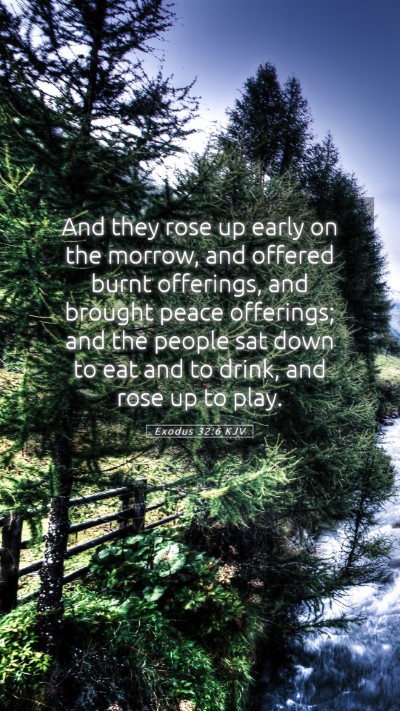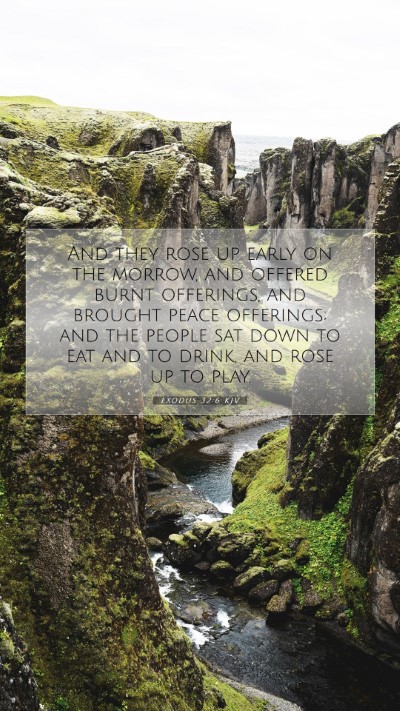Understanding Exodus 32:6
Exodus 32:6 states: "And they rose up early on the morrow, and offered burnt offerings, and brought peace offerings; and the people sat down to eat and to drink, and rose up to play." This verse presents a critical moment in the narrative of the Israelites during their time in the wilderness after the Exodus from Egypt. It reveals the people's actions as they worship a golden calf, a direct violation of God's commandments.
This passage invites Bible study insights through its rich contextual background and theological implications. Below, we delve into the interpretations and commentaries provided by prominent theologians:
Commentary Insights
-
Matthew Henry's Commentary
Henry emphasizes the stark contrast between the holiness of God and the idolatry exercised by the people. He notes that their actions signify a departure from the covenant relationship established with God, showcasing their swift return to pagan practices. The references to 'burnt offerings' and 'peace offerings' reveal how they attempted to worship God while simultaneously engaging in sinful behavior.
-
Albert Barnes' Notes
Barnes highlights the term "rose up to play," indicating a revelry that includes feasting and possibly immoral activities. He points out the implications of this phrase, suggesting that their actions reflect a superficial spirituality that degenerates into chaos. Barnes urges readers to consider how the people sought to fulfill their spiritual needs through unlawful means, thus abandoning their true worship of God.
-
Adam Clarke's Commentary
Clarke provides an in-depth analysis of the cultural context of the Israelites, explaining how their surroundings influenced their behavior. He notes that the surrounding nations practiced such idolatry, which was alluring to the Israelites. Clarke warns of the dangers of conforming to the world, emphasizing the need for discernment in worship practices.
Historical Context
To fully grasp the meaning of this scripture, one must understand its place in the narrative of Israel's liberation from Egypt. Following Moses' ascent to Mount Sinai, where he received the Ten Commandments, the Israelites' impatience leads them to create an idol. This illustrates the struggle between faith and doubt, a common theme in the Old Testament.
Thematic Analysis
This verse addresses several central themes critical to Bible verse interpretations:
- Idolatry: The act of creating a physical representation of God contradicts the very essence of worship prescribed in the commandments.
- Human Nature: The quickness with which the Israelites turn away from God underscores the frailty of human commitment and faith.
- Grace and Judgment: God's impending judgment is juxtaposed against His grace in delivering the Israelites from Egypt, indicative of the tension in God’s nature as both just and merciful.
Application to Daily Life
In applying the meaning of Bible verses like Exodus 32:6 to modern life, one must consider how contemporary society often engages in idolatry — not necessarily in the form of physical idols, but through priorities that overshadow the worship of God. This verse challenges individuals to reflect on their commitments and the integrity of their spiritual practices.
Cross References
Exodus 32:6 is closely related to several other scriptures that illuminate its themes:
- Exodus 20:3-5 - God's command against idols.
- Romans 1:21-23 - The consequences of idolatry and turning away from God.
- 1 Corinthians 10:7 - A reminder against idolatry in the Christian faith.
Conclusion
Exodus 32:6 serves as a profound Bible verse commentary on the human condition, spiritual commitment, and the nature of God. Through historical context and thematic exploration, the passage illustrates critical issues that transcend time, offering valuable lessons for Bible study groups and individual reflections alike. It's a call to vigilance in one's faith and an understanding of the implications of our choices regarding worship.


